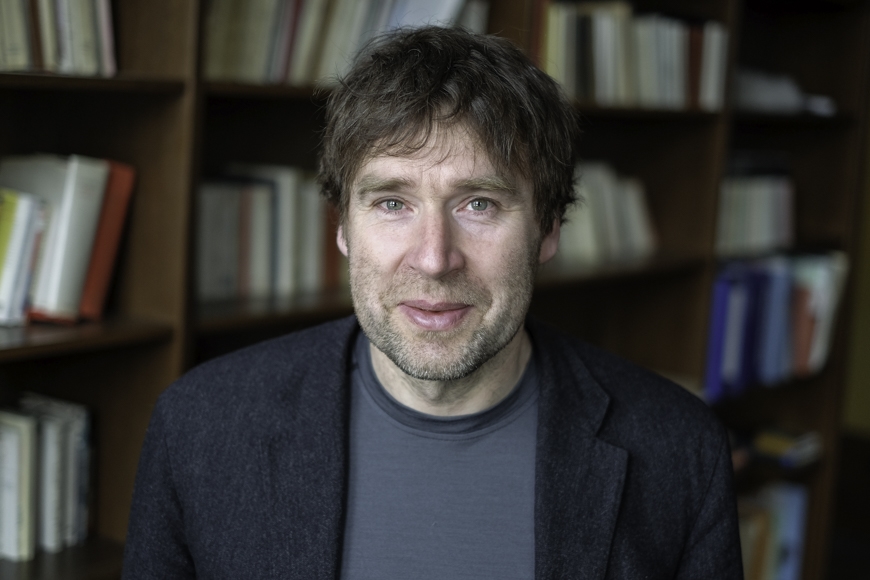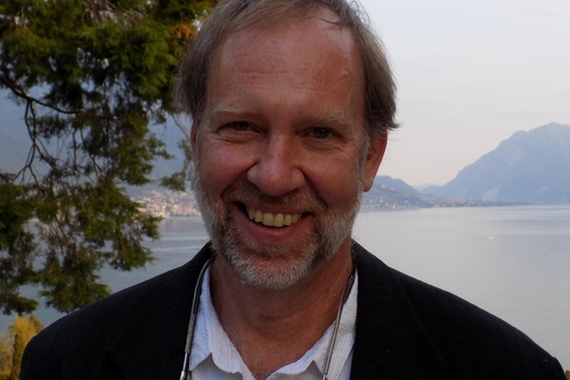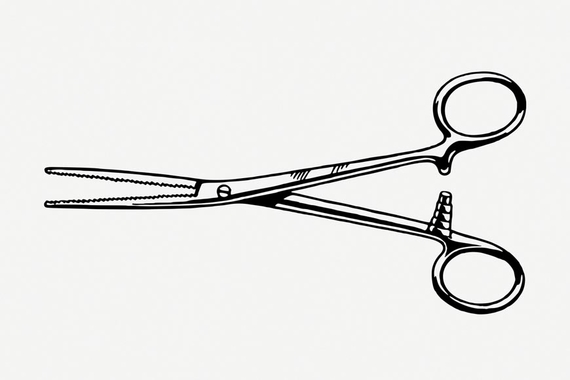The Politics of Kant’s Failures
Eighteenth-century philosopher Immanuel Kant is often regarded as an obsessively systematic thinker, striving to make the varied pieces of his philosophical puzzle fit together into a coherent picture. But scholars have long pointed out tensions and inconsistencies in Kant’s writings, spaces where the pieces don’t seem to match up.
Professor Matthias Rothe of the Department of German, Nordic, Slavic & Dutch and an affiliated member of the Department of Philosophy agrees. “I’m interested in these kinds of disconnects, moments where Kant’s systematicity fails,” he says. Where some scholars try to reconcile the apparently inconsistent views in Kant’s corpus, Rothe instead tries to explain them in terms of Kant’s historical situation. “I try to read the tensions and contradictions in Kant’s works as symptomatic,” he explains, “as indicating something about the social and economic conditions of the eighteenth century.”
Introduction to Kant
Rothe became interested in Kant while researching Stoic influence on eighteenth-century political and social thought. Taking certain “surface similarities” between Kant and Epictetus as his point of departure, Rothe investigated how Kant appropriated and transformed Stoic concepts such as freedom, self-determination, and autonomy. “I was trying to figure out what needed to be reconfigured to make these Stoic concepts work under the changed and changing socio-economic conditions of the eighteenth century,” he explains. “But I got more into Kant than I wanted,” he confesses. Rothe’s scholarship on Kant’s concepts of freedom, autonomy, and self-determination led him to explore the tensions and inconsistencies in Kant’s use of these concepts.
Clashing Concepts of Freedom
Rothe cites the divergent senses of “freedom” between Kant’s moral and political philosophies as an example of such a tension. In Kant’s moral philosophy, Rothe points out, freedom is held to lie in the autonomous capacity of human beings to self-legislate the moral law, as opposed to being enslaved by their passions and inclinations. But this conception of freedom in Kant’s moral philosophy contrasts with Kant’s political writings. “Within his political philosophy, Kant defines freedom, not as the capacity for self-legislation,” Rothe explains, “but fairly conventionally as the freedom to engage in arbitrary pursuits.” The role of political institutions, for Kant, is to regulate these various pursuits, mitigating the tension that arises when they inevitably come into conflict with one another.
Though Kant sometimes acts as though the concept of freedom in his political philosophy derives from the capacity for self-legislation, Rothe detects Kant retreating from the conception of freedom at work in his moral philosophy. “Kant tries to make it seem like it all coheres, but it really doesn’t,” he explains, “so you see him scaling back in his political philosophy from the notion of freedom as self-determination.” For example, Rothe points out that in Kant’s moral philosophy, freedom is held to apply to all human beings, while in his political philosophy, Kant excludes those who do not own property from the realm of freedom. Rothe thinks we can understand these kinds of tensions between Kant’s moral and political philosophies as expressions of the conflict between certain eighteenth-century social ideals and the stubborn historical circumstances which prevented them from being realized. “These tensions express the failures of an ideal of how society could be when it runs up against the reality of certain social and economic conditions,” he explains.
Understanding the “Failures”
But where Kant’s systematicity breaks down, Rothe sees opportunity. He quotes the twentieth-century German playwright Bertolt Brecht: “Contradictions are our hopes.” “Kant’s failures are not, strictly speaking, failures,” Rothe elaborates. “If we examine the historical and social sources of these contradictions, we see not only the failure of certain unrealizable social ideals and projects but also the possibility of missed opportunities which might be revived in a political critique of our present.” This is precisely what Rothe takes many of the French post-structuralists, such as Foucault, Derrida, and Deleuze, to have been doing. He gives the example of Foucault’s reworking of Kant’s conception of freedom: “Foucault turned Kant into a radical figure, transforming the Kantian idea of freedom as determined necessity into the possibility to be in radical rupture with society.”
Rather than trying to interpretively reshape the pieces of Kant’s philosophical puzzle, Rothe accepts that some of the pieces just don’t match up. Instead, he seeks to understand why they don’t match up, situating the tensions in Kant’s works in their social and historical context. But Rothe is quick to point out that this kind of historical approach has contemporary political relevance. “The socio-economic conditions that existed in Kant’s time—which we might broadly call ‘capitalism’—still exist today, albeit in a different form,” he says, “and what makes the thinkers of the eighteenth century so interesting is that they wrote at the time of their inception, grappling with the ambiguities and promises that came along with these changes. We very often take the contemporary world we live in as second nature, but in the eighteenth century, this didn’t go without saying. Going back to the thinkers of this period can, therefore, prove illuminating, helping us to denaturalize our present and, ultimately, to change it.”
This story was written by an undergraduate student in CLAgency. Meet the team.



